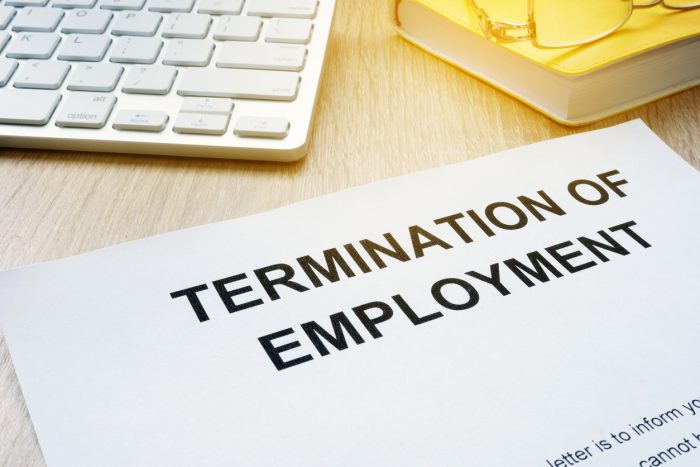Golf clubs, the law and long-term sick employees
In its latest article offering legal advice to golf clubs, the National Golf Clubs’ Advisory Association (NGCAA) looks at the issue of employees who are on long-term sickness absence.
At the NGCAA, I receive a lot of enquiries from golf clubs in relation to employees who are on long-term sickness absence. It is a complex area and detailed advice should be taken beyond the scope of this article in order to ensure that the club is dealing with its particular situation correctly.
Regardless of the length of service of the employee, the obligations under Equality Act 2010 (EqA) will apply if the employee is disabled. In terms of the practical considerations for golf club managers, there are three main issues. The first is to determine whether or not the employee has a disability; if the employee is disabled, the second is to ensure that the golf club does not discriminate on the grounds of disability (or anything else) and the third is to ensure that obligations in respect of making reasonable adjustments are met.
The second main branch of the law to consider is in relation to the potential for unfair dismissal claims. In an ideal scenario, the employee will return to work, sometimes with the assistance of workplace adjustments. However, dismissal can sometimes end up being an option for employers. If the employee has more than two years of continuous service, then if they are dismissed, it should be for one of the potentially fair reasons at law. In cases of long-term illness, that could be two potential reasons, namely conduct and capability. If it were to be a conduct dismissal, then that would be where the employer believes that the employee is not genuinely sick and that they are using sickness as an excuse not to work. Considerations of a misconduct dismissal will be the subject of a separate article.

Where the potential dismissal is by reason of capability, the employer must ensure that it follows the proper procedure, which links in with the obligations under EqA.
Even where an employee has less than two years of continuous service (and would not normally be entitled to bring a claim for unfair dismissal) the obligations under the EqA would still apply to the procedure when dealing with a long-term sick employee with a disability within the meaning of the EqA. Advice should be taken for those employees with less than two years of continuous service since some of the procedures set out below may not necessarily apply.
When employees have ‘problem’ absences from work, they can have a series of intermittent absences or a prolonged continuous absence.
With intermittent absences, careful advice should be taken in order to manage the absence. There is a separate process to follow which will be the subject of a separate article, but it is important to note that if there is an underlying medical condition, clubs will be likely to divert into a procedure similar to that for long-term absence, outlined below.
Single period of long-term absence
This is the most common situation that clubs will face; the EqA and the unfair dismissal legislation overlap here.
As far as EqA is concerned, clubs must ensure that they look at making reasonable adjustments and that they don’t discriminate. Procedure and medical evidence are key factors.
For unfair dismissal, they must determine whether in all of the circumstances they could be expected to wait any longer for the employee to return and, if so, how much longer. Each case must be decided upon its own facts since there is no predetermined legal definition as to how long the club should be expected to wait.
With long-term sickness absence, the law would expect the club to find out the true medical position and to consult the employee prior to making a decision. The first step would normally be to obtain the employee’s consent to obtain a doctor’s report. It will depend upon the circumstances, but that report may come from the employee’s GP, their own consultant, from a company doctor, from an occupational health professional or an independent consultant.
There are other complexities involved in obtaining a medical report flowing from the Access to Medical Reports Act 1988 (AMRA), which deals with employees’ access to reports by a medical practitioner who has responsibility for their clinical care. Clubs should ensure that they notify the employee of their rights under AMRA before obtaining their consent. Advice should be taken in respect of these matters.

Consideration should also be given to the fact that handling a medical report would be processing data relating to the employee’s health under GDPR. This means that before processing such information clubs should satisfy themselves that they can do so lawfully – advice should be taken on this point if clubs are unsure.
It should be noted that if the employee refuses to allow a medical report, they increase their risk of being fairly dismissed, where the club could make decisions without the benefit of medical evidence.
Once the club has the report back from the doctor, a meeting should be arranged with the employee to discuss the content. The medical report is likely to be the centre point of any discussion, but the employee may raise new issues or facts of which the employer was unaware.
The medical report should cover such issues as the nature of the medical condition, prognosis, likely return to work, the effect upon day-to-day activities, the ability to perform their job and any adjustments that could be made.
When considering whether or not to dismiss, clubs should take into account the following:
- The nature and likely duration of the illness; is it a disability within the meaning of EqA?
- The need for the employee to do the job for which they were employed: the difficulty of covering their absence could mean that a dismissal is more likely to be justified if they are particularly skillful
- The possibility of varying their contractual duties – this is where reasonable adjustments apply and clubs could look at matters such as varying times that they work (on a temporary or permanent basis) and any physical aids to assist the employee in returning to work, which could mean avoiding a dismissal. What is reasonable very much depends on the facts
- Whether sick pay has run out (this is just one factor)
- The nature and length of the employee’s service.
When looking at the disability side of a long-term absence, it is important to consider the application of reasonable adjustments; an employee’s most likely claim is one for discrimination arising from disability, for which there is a justification defence available. Clubs are likely to be able to successfully deploy a justification defence in circumstances where they have properly considered and likely put in place reasonable adjustments prior to a possible dismissal. Thereafter, whether dismissal (a possible act of unfavourable treatment arising from disability) is capable of justification will depend upon the individual facts of the case and whether the alleged unfavourable treatment was a proportionate means of achieving a legitimate aim. Again, if an employee has a disability, advice should be taken.
As can be seen from the above, there are many things for a club to consider when dealing with a long-term sick employee. In addition to the above, there should be proper consultation with the employee, perhaps making allowances where the absence is the employer’s fault (such as a workplace accident), considering early retirement under the pension scheme (if there is one), considering any permanent health insurance scheme (if there is one) and ensuring that a proper procedure is followed with due consideration of the contents of any medical report.

For more advice on recruitment, employment or other matters of law affecting golf clubs, please contact NGCAA chief executive Alistair Smith.
(New address) The National Golf Clubs’ Advisory Association (NGCAA)
The Media Centre, Emirates Riverside,
Chester-le-Street, County Durham, DH3 3QR
Tel: 01886 812943
email info@ngcaa.co.uk















Delicate situation…good read…thank you